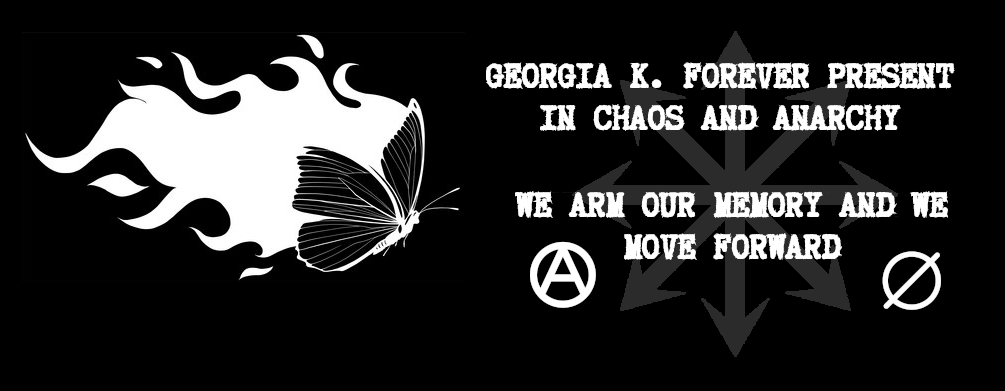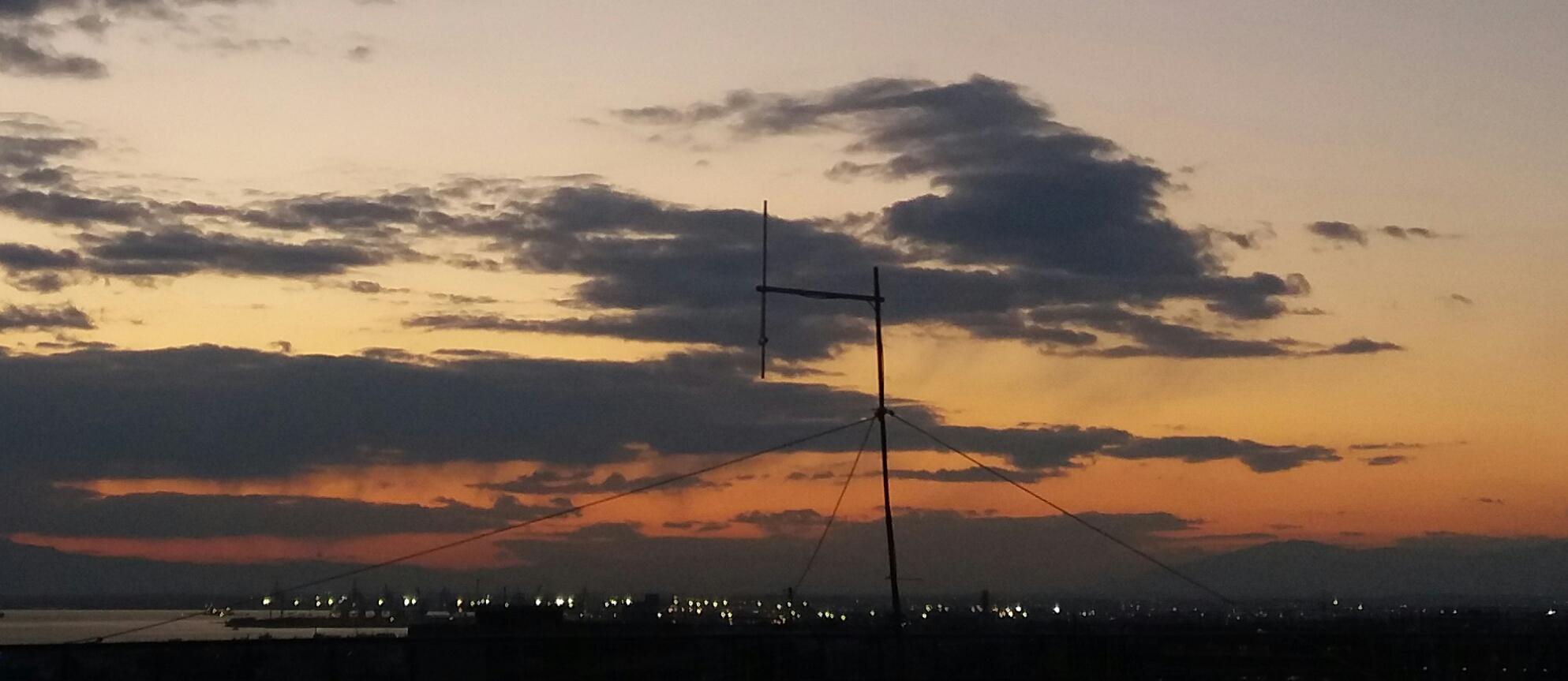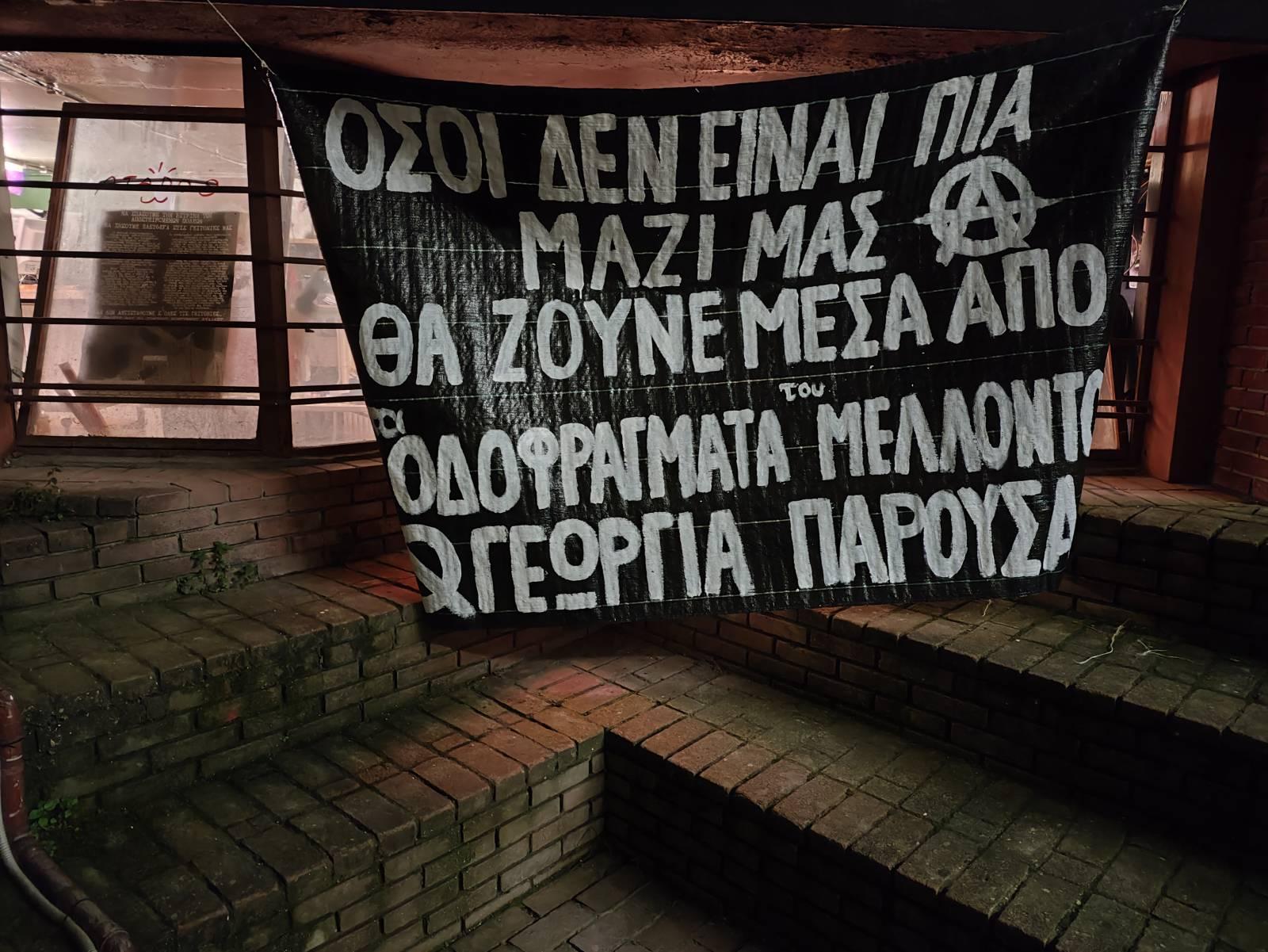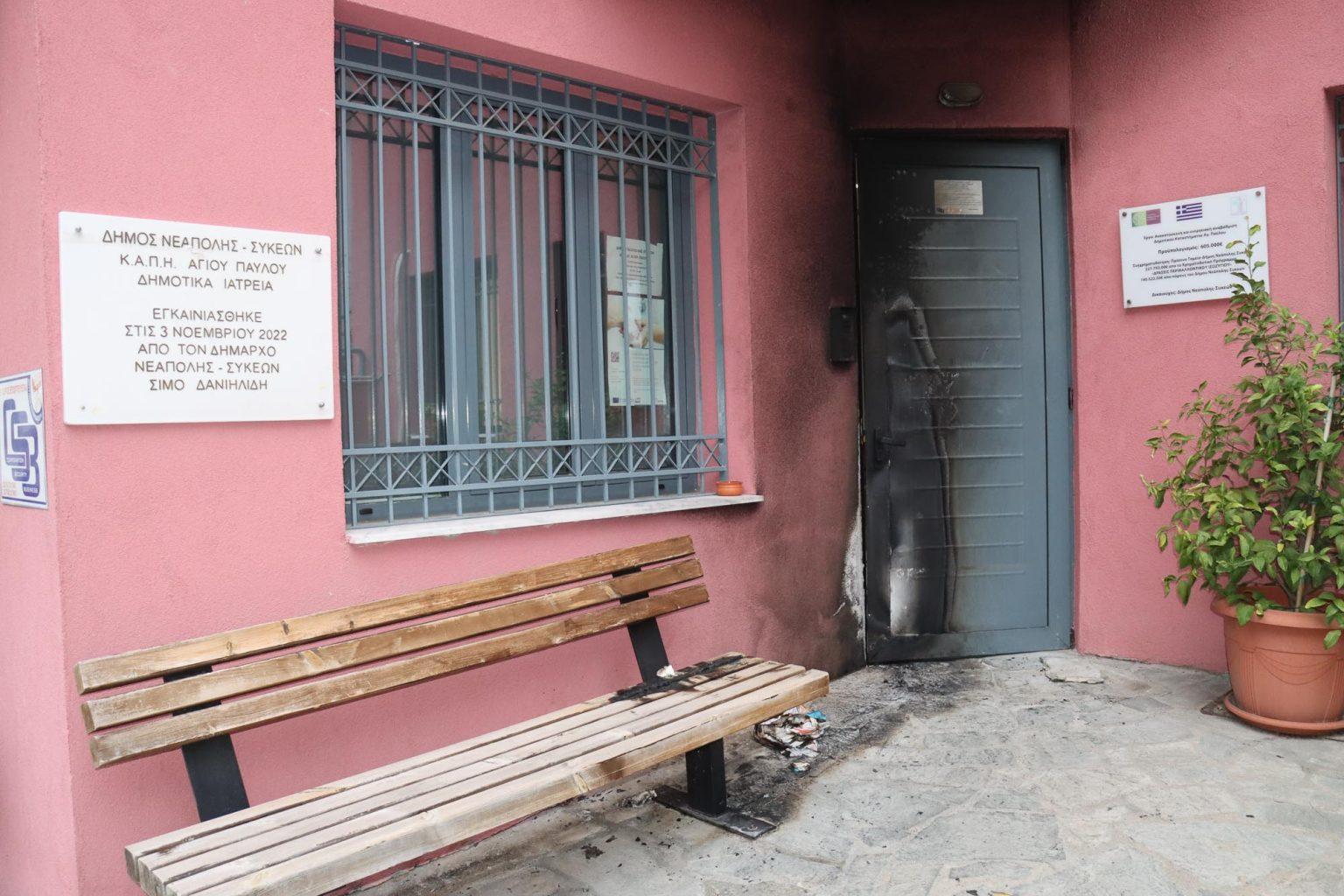The daily grind of medieval working conditions, class humiliation and extermination of the proletariat, employer impunity and terrorism, austerity measures that strangle the social base, torture in the hellhole police stations, the hundreds of murders at the borders of Fortress Europe, the destitution in detention centers, the permanent panoptic surveillance and mapping of every movement, the upgrading of repression and the legal arsenal of the state, demands the intensification of social resistance, the breaking of the omnipotence of the state through the spread of polymorphous aggressive actions of social violence directed against this insatiable system that annihilates human life and treats us as expendable, as numbers.
Even more so when this daily routine is stained with the blood of people from our class, with state-capitalist murders committed in the name of profit and greed, as was recently the case with the mass murder of workers at the “Violanta” in Trikala, where five female workers were buried under tons of rubble after an explosion caused by a propane leak, as well as the murder of 15 migrants by port police off the coast of Chios during a violent push-back.
Similarly, the anarchist urban guerrilla Kyriakos Xymitiris, who was killed prematurely while handling explosives in an apartment on Arkadias Street in Ambelokipi, on October 31, 2024, chose to arm himself to fight “this rotten world that feeds on its own flesh,” chose to hold fast to the thread of revolutionary history and devote himself entirely to the Revolutionary Struggle, against complacency and compromise, with steely determination, humility, and optimism.
We, in turn, on the evening of Sunday, 1st February, carried out a raid on targets on Patission Street in Ano Patissia, striking and causing material damage to the windows and ATMs of three banks (Eurobank, Alpha Bank, and Optima Bank), as well as the window of Nova Bank. We dedicate this action to our comrade Kyriakos Xymitiris and to our persecuted comrades in the Ampelokipi case, who have been imprisoned for 15 months. We call for the spread and multiplication of aggressive actions, in view of the upcoming trial for the case.
PS. Solidarity and strength to the comrades in Thessaloniki who have recently been targeted by increased state repression and police arbitrariness, the latest example being the unprecedented number of detentions (over 300) from a concert at Aristotle University of Thessaloniki following attacks on police forces that took place outside the venue.
FREEDOM FOR THE COMRADES IN THE AMPELOKIPI CASE
KYRIAKOS XYMITIRIS ALWAYS PRESENT
Source: athens.indymedia





